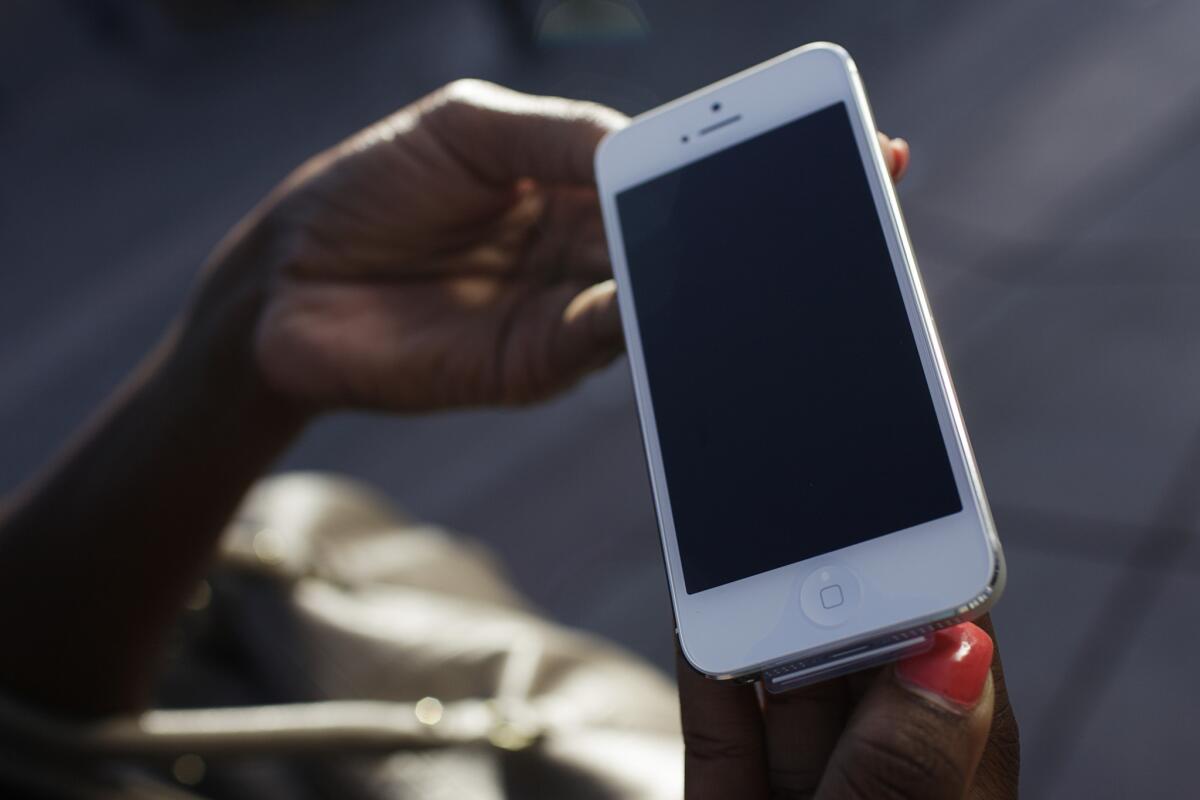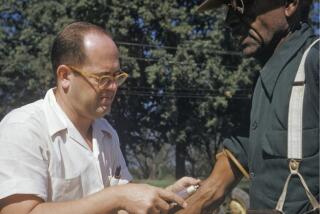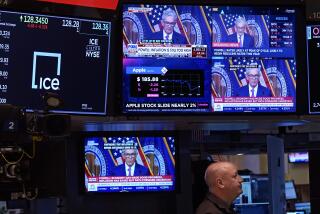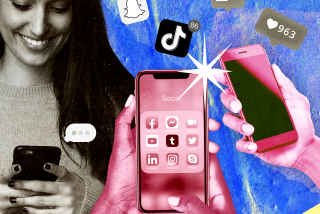Smartphones reducing ‘digital divide’ for blacks, survey finds

- Share via
Smartphones are helping black Americans whittle down the “digital divide” with whites, according to a report released Monday by the Pew Research Center.
Blacks are still behind whites in Internet use, especially among older and less educated Americans: The survey found that 87% of white respondents said they use the Internet, compared with 80% of black respondents. The gap was even wider among African Americans over the age of 50 -- as well as among those who did not go to college.
But younger blacks appear to have closed the gap, the nationally representative survey of more than 6,000 people indicated. Rates of Internet usage were virtually identical among black and white respondents who were in their 20s. There was also little difference among those with a college education.
When it comes to smartphones, blacks are just as likely to own them as whites, Pew said: The survey found that 56% of black respondents said they had a smartphone, compared with 53% of white respondents.
A tenth of black adults who were surveyed said they didn’t have a broadband connection at home, but did have a smartphone. That helps narrow -- but not totally eliminate -- the “high speed access gap” between whites and blacks, Pew concluded. All in all, 80% of white adults who were surveyed had either a home broadband connection, a smartphone or both, compared with 72% of black adults surveyed.
Though smartphones have been heralded as a way to close the “digital divide,” some activists caution that the devices still have limitations as a primary way to get online. Filling out job applications or writing a resume, for instance, is much harder on a phone than on a laptop or desktop computer.
“With a tiny little screen, it’s harder to navigate through websites -- particularly if you’re trying to do homework,” said Stephanie Chen, energy and telecommunications policy director for the Greenlining Institute in Berkeley. “If you don’t have Wi-Fi, you may run into data caps.”
Smartphone access “is not really solving these problems the way we were hoping it would,” Chen added. “We see the digital divide playing out online, even among the connected.”
Besides gauging the “digital divide,” Pew also delved into what people are doing online: It said white and black respondents were equally likely to use social networks such as Facebook, Google Plus or LinkedIn, which are nearly universal among young adults.
But black respondents, especially those in their 20s, were more likely to be on Twitter than their white counterparts: The survey found that 40% of African American respondents between the ages of 18 and 29 were on Twitter, compared with 28% of white respondents in the same age range.
Pew worked with Princeton Survey Research Associates International, which conducted phone interviews with more than 6,000 people living in the United States between July and September of last year. Interviews were done in English and Spanish and used land lines and cellphones.
ALSO:
After Zynga announcement, bitcoin price tops $1,000
CES 2014 live from Vegas: Giant TVs, gadgets that think for themselves
CES 2014: Sensors, broadband move consumers into ‘Age of Autonomy’







